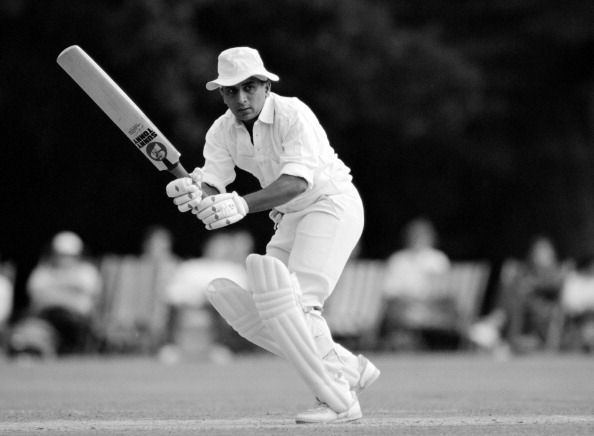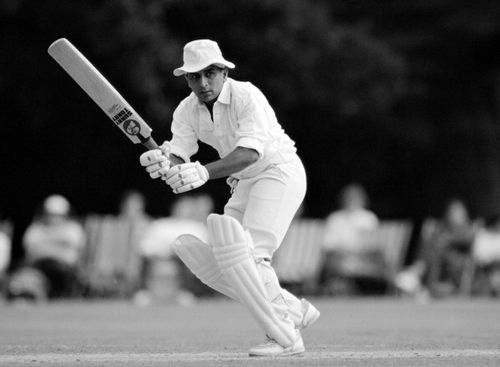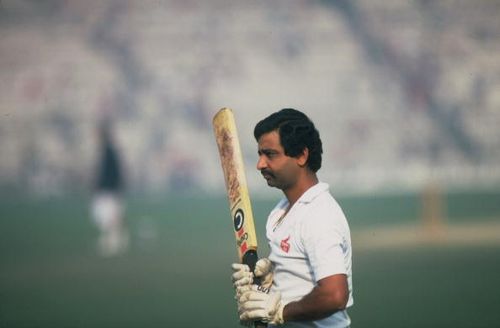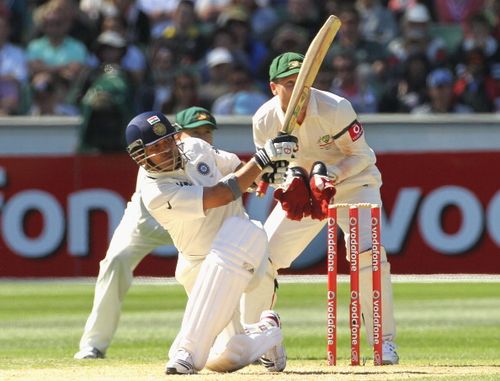
Biggest match-winning batsmen in Indian Test cricket history
India has produced many great batsmen in its cricket history. From Sunil Gavaskar onwards to the current top guy in Virat Kohli, we have seen many batsmen who have performed credibly in the international arena. They have won many matches and series single handedly with their efforts and brought great laurels to the country. Let us have a look at these heroes, their impact on Indian cricket and their greatest triumphs.
Sunil Gavaskar

Sunil Gavaskar
Sunil Gavaskar was responsible for putting Indian batting on the global map. In the 70s and 80s, he was the best opener in international cricket and averaged above 50 in Test cricket. He performed superbly against the best fast bowling attack of his era and scored 13 centuries in 27 matches against the then mighty West Indies. He did not have the backing of a strong bowling attack and this prevented him from winning more matches for India.
His biggest contribution was in saving many Test matches for the country. Of the 125 Tests that he played, 67 resulted in draws and Gavaskar averaged 65.64 in these matches, with 22 centuries. Another remarkable aspect of Gavaskar’s batting was his ability to play for long periods, especially in fourth innings of Tests.
Several other top batsmen have performed below potential in the fourth innings, a good example being Sachin Tendulkar. In 47 such innings, Tendulkar averaged less than 38, while Gavaskar averaged a stunning 58.25 in 33 innings.
Gundappa Viswanath

Gundappa Viswanath
Another major linchpin of Indian batting in the 70s and 80s was Gundappa Viswanath. He was renowned for performing well under great pressure, and when the team needed him the most. Though his stats are impressive in themselves (an average of 42 in 91 Tests, including 14 centuries), they don’t provide the full picture. Right from his debut till he retired, he performed better than any other Indian batsman when the chips were down.
He delivered many all-time great match winning efforts. His most memorable effort was a match winning 97 against a rampaging Andy Roberts at Madras in 1974-75. The second highest score in the innings was 19. He averaged more than 53 against both Australia and West Indies, the two best bowling attacks of his era. India never lost a match on the 14 occasions when he scored a century.
Sachin Tendulkar

Sachin Tendulkar
In the early 90s, Sachin Tendulkar became the poster boy of Indian cricket. His unique talents included a perfect balance, a great eye which enabled him to meet the ball on the rise, and time to play the ball. His biggest strength was his consistency and ability to perform well in all conditions. He was especially prolific against the Aussies, scoring 11 centuries against them in 39 matches.
He ended with 51 centuries in 200 Test matches, and played many great knocks for India. His biggest achievement was his consistency over such a long duration of 24 years, which would normally see two top class batsmen play for a team over that long a duration.
He was an integral part of a very strong Test side on Indian soil in the 1990s, which did not lose a single Test series. He was also the only Indian batsman who succeeded on foreign soil in the 90s, and produced many great knocks in testing conditions. Had he played in a stronger team then, he would have had many more match winning innings to his name.
His best match winning knock during this time was a scorching 155 in 191 ball versus an Aussie side which had Shane Warne in its ranks. Tendulkar smashed Warne to all corners of the park in that innings, and his breezy innings ensured India’s domination over the Aussies in that Test and a series victory over the no.1 Test side. He also had a big heart break against Pakistan in 1999, when his 136 on a weary Chennai pitch, against an all time great Pakistan bowling attack comprising the likes of Wasim Akram, Waqar Younis and Saqlain Mustaq, ended in bitter defeat.
In the 2000s, he changed his batting style and became less aggressive. A part of this could be attributed to injuries and a part to a change in his mindset. Tendulkar worked best when he played positive, attacking cricket. Unfortunately, he changed his batting approach in the 2000s, and became a less dangerous batsman than he was in his prime. Though he still scored many runs, he didn’t produce the same impact as in the 90s. Most of his best knocks were support innings to the big match winners like Rahul Dravid and Virender Sehwag.
Maybe the pressure of it all forced him to change or maybe it was the injuries. However he was a shadow of the dominant batsman of the 90s and didn’t have the same impact as in the first half of his career. However his contribution to Indian cricket is beyond description. He captured public imagination like no cricketer before him did, and was revered as God in his home country.